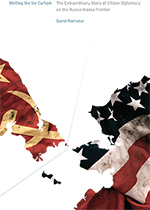
Key players in melting the Alaska-Russia Ice Curtain in the mid-1980s discuss how Alaska helped end the Cold War, launching a 30-year era of productive commercial and personal relations across the Bering Strait.
Speakers at a glance –
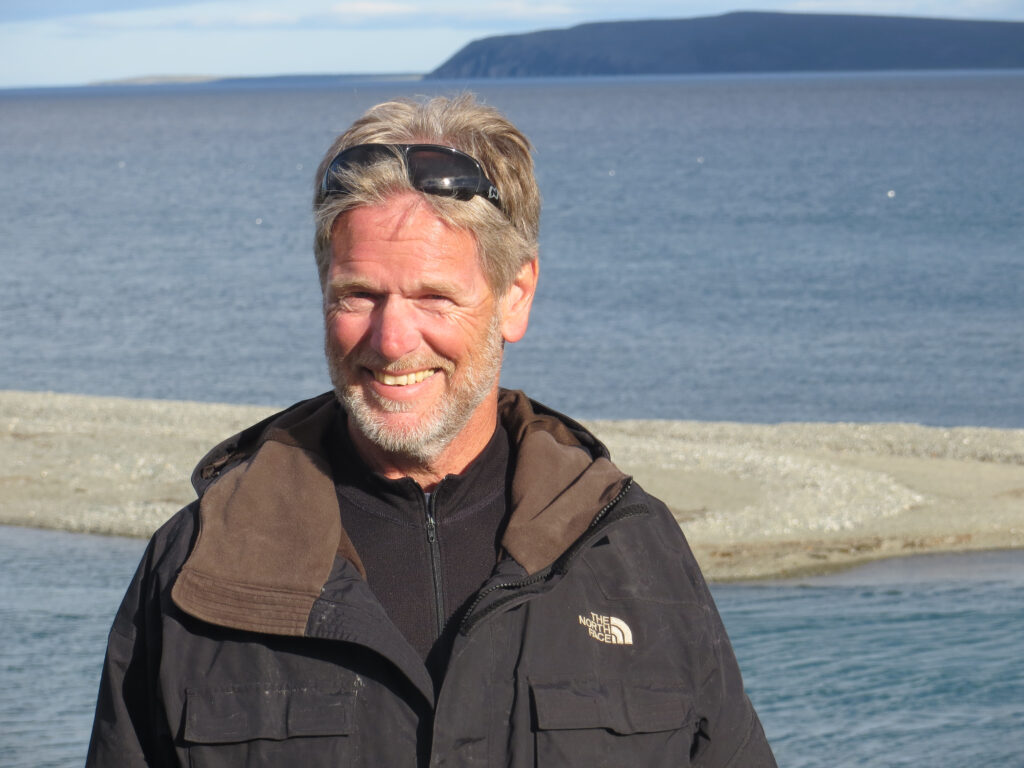 David Ramseur, long-time Alaska journalist and author of a new book, Melting the Ice Curtain: The Extraordinary Story of Citizen Diplomacy on the Russia-Alaska Frontier, moderates the panel discussion. His guests include:
David Ramseur, long-time Alaska journalist and author of a new book, Melting the Ice Curtain: The Extraordinary Story of Citizen Diplomacy on the Russia-Alaska Frontier, moderates the panel discussion. His guests include:
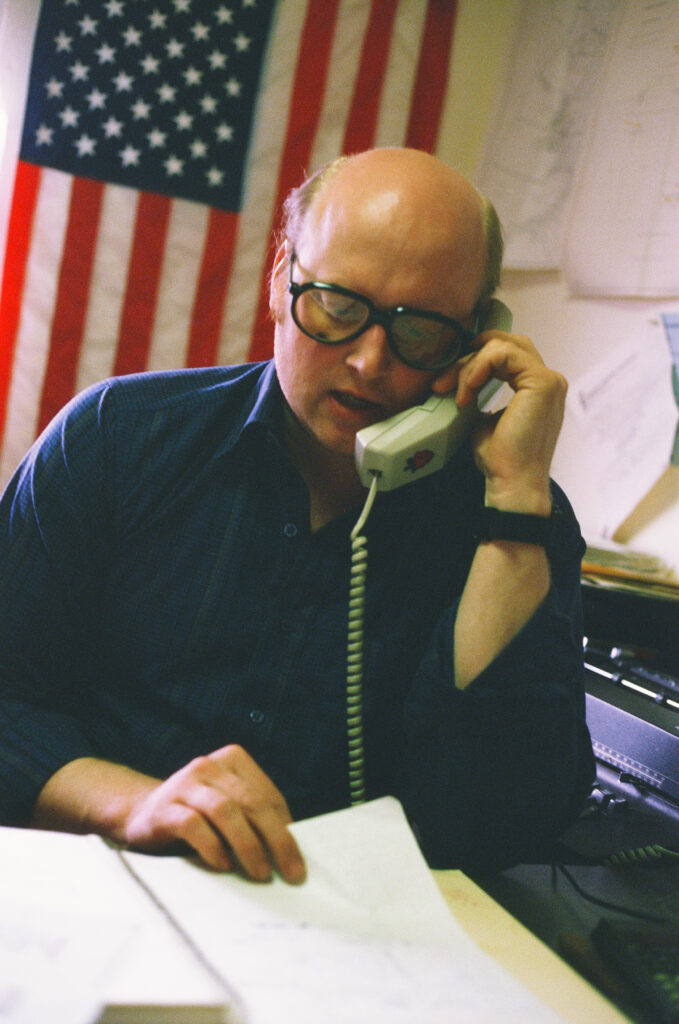 Jim Stimpfle – a Nome realtor whose stories of interactions with Russia through his Native wife’s family inspired him to engage in “Balloon Diplomacy” and other efforts to open the Strait. Stimpfle has visited Russia many times and helped convince Nome merchants to accept Russian rubles.
Jim Stimpfle – a Nome realtor whose stories of interactions with Russia through his Native wife’s family inspired him to engage in “Balloon Diplomacy” and other efforts to open the Strait. Stimpfle has visited Russia many times and helped convince Nome merchants to accept Russian rubles.
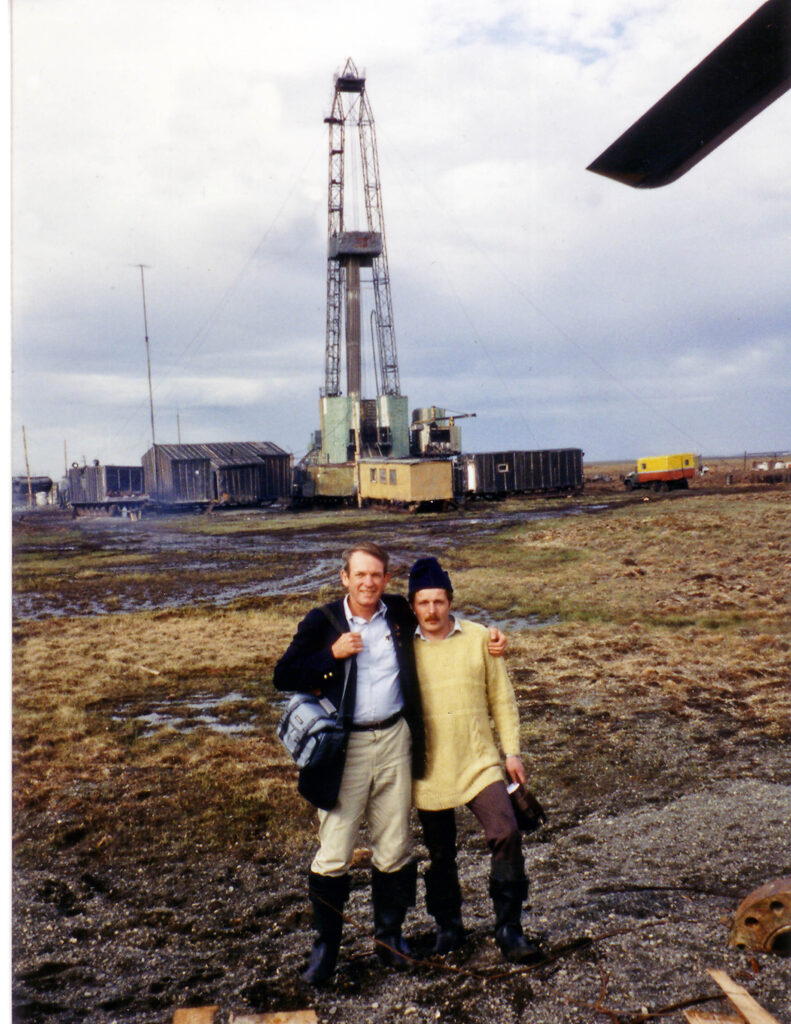 Dave Heatwole – a former Alaska oil company executive who caught the “Russia bug” through the Alaska State Chamber of Commerce and traveled numerous times to Russia as one of the few Alaska businessmen who were successful working there. Heatwole even met his wife working in Russia.
Dave Heatwole – a former Alaska oil company executive who caught the “Russia bug” through the Alaska State Chamber of Commerce and traveled numerous times to Russia as one of the few Alaska businessmen who were successful working there. Heatwole even met his wife working in Russia.
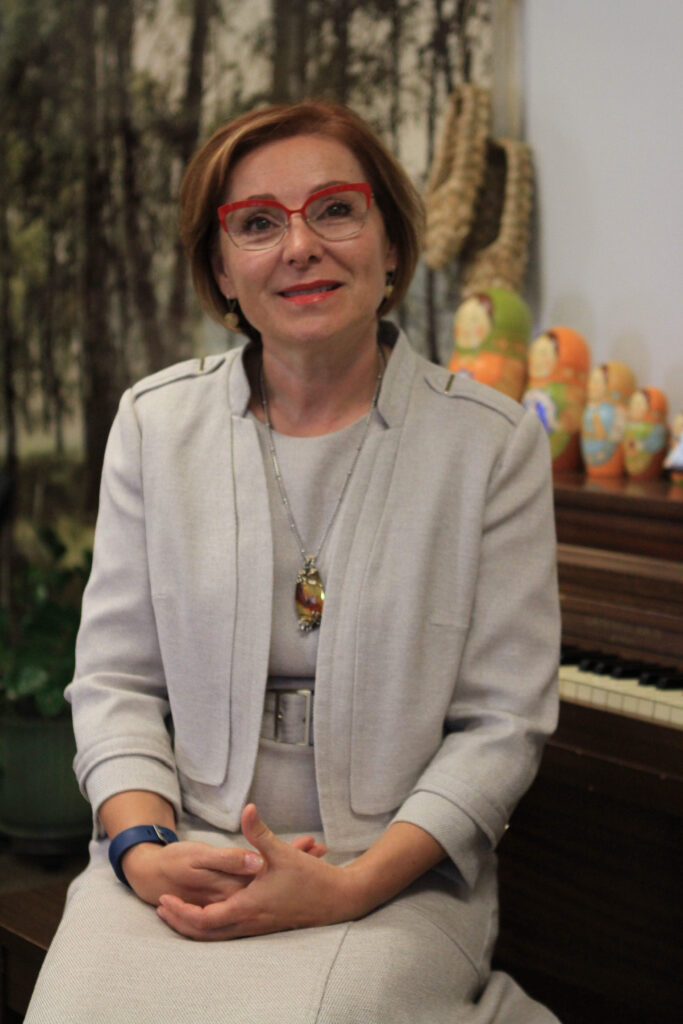
Elena Kostenko-Farkas – West High School’s Russian language teacher and founder of the Anchorage public school Russian immersion program. Farkus moved to Alaska from Magadan, Russia, in 1992, operated a Russian bookstore in Anchorage and promotes Russian cultural understanding.
 David Ramseur is a Visiting Scholar in Public Policy at the Institute of Social and Economic Research at the University of Alaska Anchorage and is the author of Melting the Ice Curtain: The Extraordinary Story of Citizen Diplomacy on the Russia-Alaska Frontier, telling the story of how inspiration, courage, and persistence by citizen-diplomats bridged a widening gap in superpower relations.
David Ramseur is a Visiting Scholar in Public Policy at the Institute of Social and Economic Research at the University of Alaska Anchorage and is the author of Melting the Ice Curtain: The Extraordinary Story of Citizen Diplomacy on the Russia-Alaska Frontier, telling the story of how inspiration, courage, and persistence by citizen-diplomats bridged a widening gap in superpower relations.
A 36-year-Alaskan, Ramseur just concluded six years as chief of staff to Alaska U.S. Senator Mark Begich where he managed the Senator’s Washington, D.C. and Alaska offices and served as the top political and foreign policy advisor to Senator Begich. Between 2003-08, he was chief of staff to then Anchorage Mayor Begich. He also served Alaska Governors Tony Knowles and Steve Cowper as chief of staff, press secretary and foreign policy advisor.
In 1988, Ramseur helped organize the “Friendship Flight” between Nome, Alaska and Provideniya, Russia, which reunited indigenous families on both sides of the Bering Strait and helped launch nearly two decades of commercial, scientific and cultural activity between the regions. He managed a $2 million federal grant for educational and scientific exchanges between Alaska and the Russian Far East at the University of Alaska’s American Russian Center in 1993-94 and worked in Nizhny-Novgorod, Russia as a volunteer media advisor in 1993.
He has traveled extensively in Russia, Asia, Europe and the Arctic. He holds a political science Bachelor’s degree from the University of North Carolina Asheville and a Master’s in journalism from the University of Missouri. He lives in Anchorage where he enjoys triathlon training and golf. He is married to Anchorage attorney Susan Wibker.
Book:
 Just five years after a Soviet missile blew a civilian airliner out of the sky over the North Pacific, an Alaska Airlines jet braved Cold War tensions to fly into tomorrow. Crossing the Bering Strait between Alaska and the Russian Far East, the 1988 Friendship Flight reunited Native peoples of common languages and cultures for the first time in four decades. It and other dramatic efforts to thaw what was known as the Ice Curtain launched a thirty-year era of perilous, yet prolific, progress.
Just five years after a Soviet missile blew a civilian airliner out of the sky over the North Pacific, an Alaska Airlines jet braved Cold War tensions to fly into tomorrow. Crossing the Bering Strait between Alaska and the Russian Far East, the 1988 Friendship Flight reunited Native peoples of common languages and cultures for the first time in four decades. It and other dramatic efforts to thaw what was known as the Ice Curtain launched a thirty-year era of perilous, yet prolific, progress.
Melting the Ice Curtain tells the story of how inspiration, courage, and persistence by citizen-diplomats bridged a widening gap in superpower relations. David Ramseur was a first-hand witness to the danger and political intrigue, having flown on that first Friendship Flight, and having spent thirty years behind the scenes with some of Alaska’s highest officials. As Alaska celebrates the 150th anniversary of its purchase, and as diplomatic ties with Russia become perilous, Melting the Ice Curtain shows that history might hold the best lessons for restoring diplomacy between nuclear neighbors.
Post Event Podcast
If you missed this engaging presentation you can now listen to the podcast of the event courtesy of Alaska Public Media. Happy listening!
